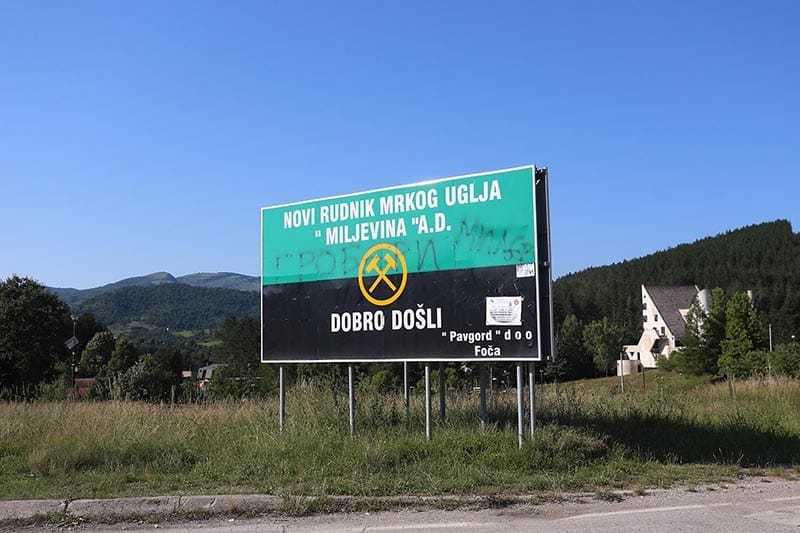When Gordan Pavlović bought the New Mine of Brown Coal Miljevina near Foča for 6 million KK, he got a great deal. Coal deposits alone were worth at least 3 billion KM.
But Pavlović didn’t live up to terms of that great deal, the Center for Investigative Reporting in Sarajevo (CIN) has discovered. He was supposed to hire 100 workers over three years, but at the end of 2013, there was 41 workers. Despite this failure, the Republika Srpska (RS) Ministry of Industry, Energy and Mining has never fined him the near 600,000 KM it might have, and instead supported him with a subsidy export grant worth 266,433 KM.
When the RS National Assembly approved the sale of Miljevina, it was understood that the buyer would continue underground mining. Instead, Pavlović closed the pits and mines only the surface area.
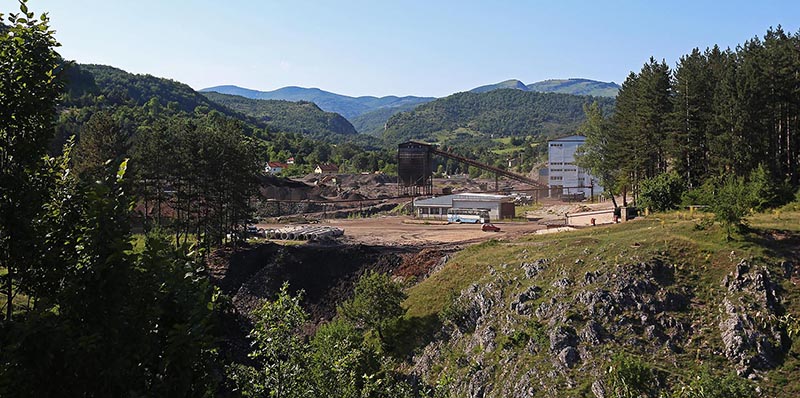
Transformation of the Mine
Excavation of brown coal from Miljevina began in 1947 in the Nozdre pit. Four decades later, surface excavation of Budanj started. The state owned the mine until early 2000 when it was privatized and transformed into the Joint Stock Company Miljevina Mine of Brown Coal. The RS government and its funds kept 80 percent of the company’s shares and small shareholders including the mine’s workers bought the rest. The mine was not doing well at the time.
Mining technician Momčilo Andrić, who worked at the mine at this time, said that the company was burdened with more bureaucrats than miners. “There were, say, 50 of us here, and 200 of them there,” he said.
Obsolete and inadequate equipment hampered open pit operations and eventually only underground mining was being done with great effort. By mid-2006, losses had reached more than 12 million KM. The company’s accounts were frozen with workers losing out on more than 1 million KM in pay.
They turned to the RS government for help which tacitly encouraged them to file for bankruptcy. In late 2006, 83 workers did and proceedings opened before the Basic Court of Trebinje. Lazo Đurđević was appointed bankruptcy trustee.
According to the paperwork he compiled at the time, the bookkeeping value of the mine was above 34 million KM. Đurđević told CIN that the approved creditors’ claims, including those of the workers, were 7.6 million KM.
Those figures show that all debt could have been settled through the sale of assets.
However, the trustee called in appraisers believing that the bookkeeping value was no longer realistic. They put the value of nearly a quarter-million square meters of land, buildings, equipment, 15,000 tons of coal, and nonmaterial investments in geological investigations of the coal basin at 8.1 million KM.
Everything except for two management buildings and unexcavated coal was auctioned off. The RS government appeared as a buyer with the price of 4.9 million KM. The former RS energy minister Rajko Ubiparip and Đurđević signed the bill of sale in January 2008.
The trustee said there was nothing controversial about the RS Government buying up the assets of a company in which it held majority control.
“Anyone could buy it,” he said. And the money paid off much of the debt including the unpaid salaries. Various suppliers were left hanging for 2.7 million KM. However, the trustee said that it would be hard to sell the management buildings because they were housing refugees.
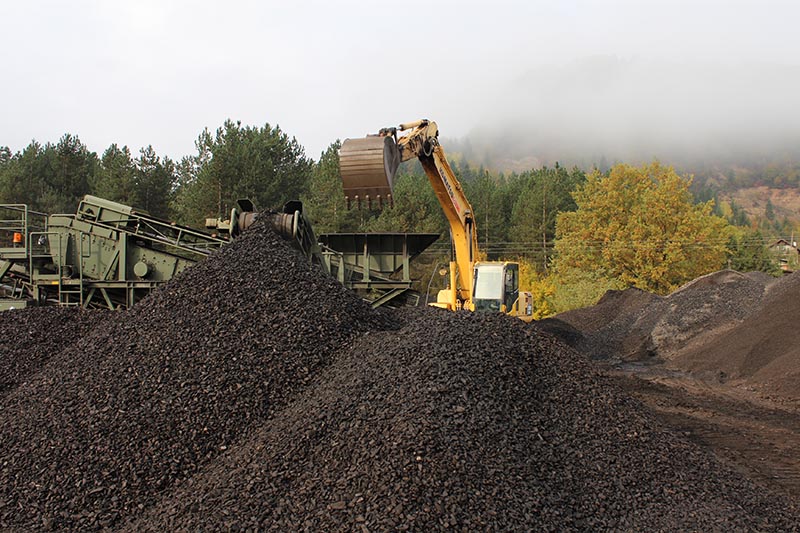
Setting up a New Company
After the purchase, the RS government set up the New Miljevina Mine of Brown Coal and a handful of workers continued to dig.
Former worker Andrić said this was a good time for them. “We worked awfully well. We had a good salary.” He said that there appeared to be many interested buyers for the mine, though not all seemed like good prospects.
“There were many shady dealers. I guess there had been several dozens various delegations from Vietnam, Russia, the Czech Republic, Western countries and various types from around here,” said Andrić.
Three companies gave the RS government offers: Inox-Tehnomont from Grude; Euro Invest from Moscow; and Pavgord from Foča. The first two gave up, however, and the offer from the Foča company was accepted.
The government report about the bidding was sent to the RS Assembly in which it said that Pavgord offered 6 million KM for the mine with a promise to invest 10 million KM in equipment and infrastructure. He also said old workers would be kept and new workers hired to mine above and below ground.
MP Vukota Govedarica said at the Assembly session in July 2010 that the report was incomplete. “I’m afraid that we cannot see anything from this, and I don’t know if this miracle can really happen in Foča over the next three years.”
Still, the report was approved by 47 assembly members with 15 abstentions and the sale to Pavgord got the go-ahead.
The following month RS Prime Minister Milorad Dodik and the Pavgord owner Pavlović signed a bill of sale with terms including a 6 million KM sales price, a required investment into the company’s equity of more than 10.1 million KM within three years, and the employment of 100 workers during that same time.
Pavlović promised to continue excavation without defining if it would be in the pits or on the surface as the RS legislators had been informed. Also, the contract stated that the production would have advanced as soon as the company was granted a concession license for excavation of brown coal in short time. The Assembly members did not discuss a concession.
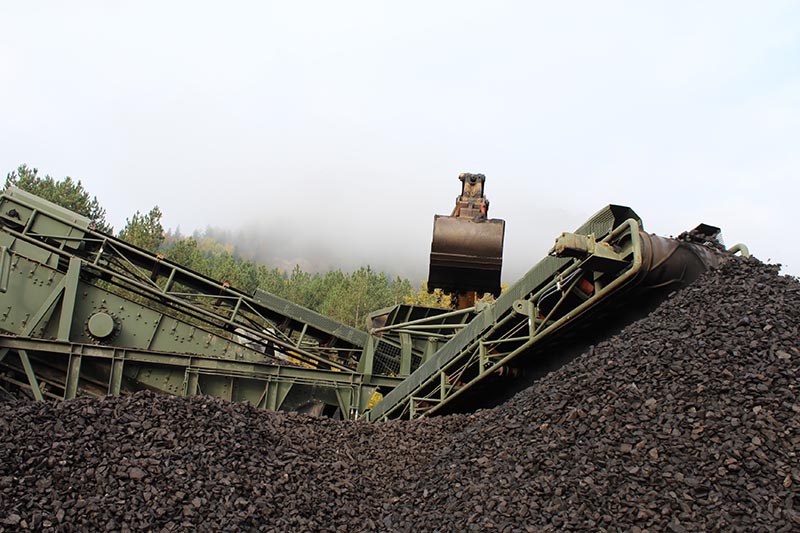
According to information CIN has obtained, four months after the signing of the bill of sale, Pavlović got a license good for 30 years. The RS government will not allow reporters to see the contract. According to records from the RS Finance Ministry, Pavlović paid a one-time fee of 87,750 KM after the deal and more than 1 million KM for the use of mineral resources by May 2015.
The president of the RS Commission for Concessions Predrag Aškrabić said concession licenses in cases involving privatized mining companies are agreed directly with the energy ministry: “Mainly, it all goes by default.”
This explains why Pavlović did not buy the old mine’s assets during the bankruptcy auction, even though there was some discussion about it. Instead, he bought the new mine the RS government created with the old assets. Đurđević told CIN that he just sold assets without the concession. “I’m not the one giving the license. I have nothing to do with pits, whether surface or underground.”
According to RS government records, some 40 million tons of coal reserves may sit under Miljevina. One of the mine’s post-war directors Aleksandar Golijanin said this figure represents only underground deposits and another 10 million tons sit at the surface. “This is an exceptional resource, exceptional,” he said.
Calculating that the baseline price of Miljevina coal is 60 KM per ton, this would mean the site is worth at least 3 billion KM.
Defaulting on Terms of Contract
According to records CIN has obtained, Pavlović ordered the pits closed when he took over.
“Underground excavation calls for experts and there’re none in Miljevina,“ said Golijanin.
Some 40-odd miners do 12 hours a day for 600 KM a month on average. The company’s financial statements show no sign that 100 workers had been hired after three years. Penalties for not meeting the employment program amount to 10,000 KM per worker or around 600,000 KM in total because at the end of 2013 the mine employed 41 workers. Fines could’ve been deducted from bank guarantees that Pavlović provided for the period of three years and 4 months.
The RS ministry of industry confirmed that it did not levy any penalties, nor did it do an inspection to find out if other contractual obligations had been met.
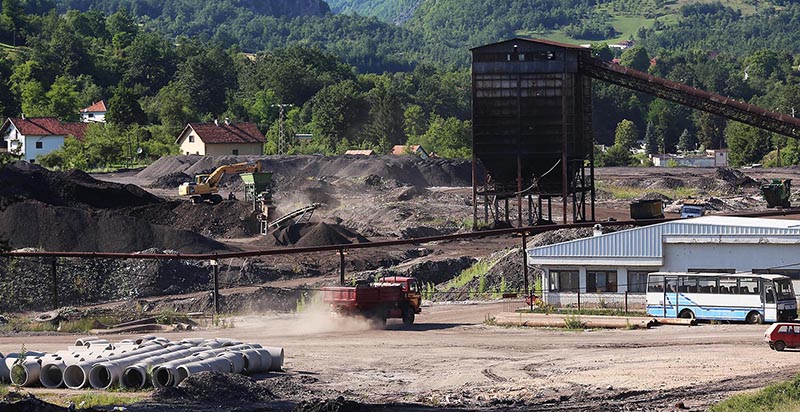
CIN has the ministry’s document showing how Pavlović attached a bank guarantee of 100,000 KM which lasted until Jan. 17, 2012. After that, he increased the equity for 10. 1 million KM and according to the ministry’s document “he has fulfilled the contractual obligations in terms of investment into the company, so there was no need to provide bank guarantees for the second and third year of investment.”
Grants Instead of Penalties
Not only was Pavlovic not punished for failing to meet contractual obligations, but the RS government bestowed privileges on the new mine. Records from the mining ministry show that the mine received export grants worth more than 266,000 KM during the three years.
Between 2011 and 2014, Miljevina exported 20.8 million KM worth of coal to Serbia, Hungary, Montenegro and Kosovo according to the BiH Foreign Trade Chamber.
Many public companies in BiH also buy Pavlović’s coal.
Financial indicators show that Pavlović earned 15.3 million KM between 2011 and 2014 — which nearly equals his investment into buying and upgrading of Miljevina.
Still, Pavlović is not happy. He declined to be interviewed, but in a short conversation with CIN reporters he said that business was not brisk, and he wants to close the mine.



